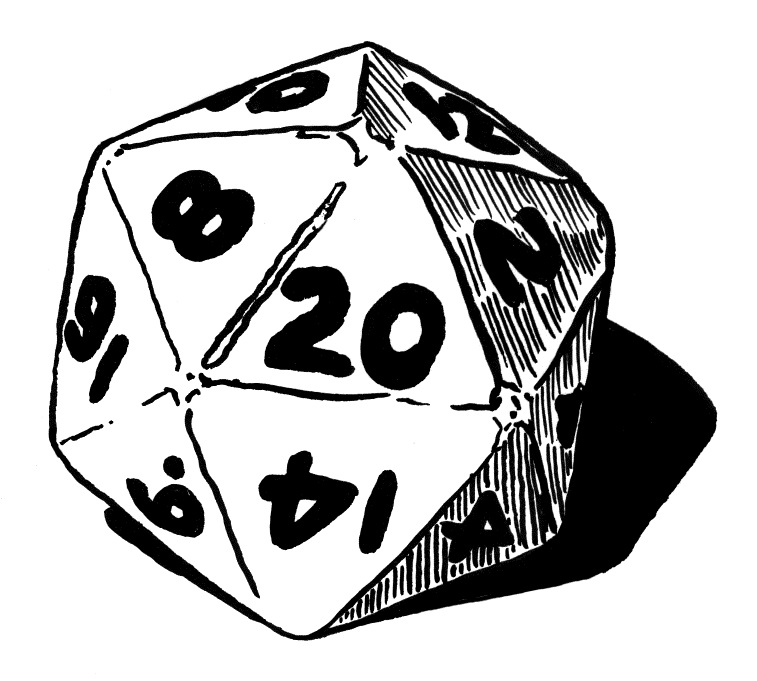So, I’ve been running the PF2E beginner box, which is like a tutorial adventure, for a group of 5 people (we play as long as at least 3 show up). The players had the option of playing any of the pregen “iconic” characters for Pathfinder. So far, we’ve had a fighter, witch, monk, swashbuckler, and summoner. Of those, only the witch has any sort of healing, and the witch player couldn’t make our session last night.
The players went into this room that is meant to be like an optional miniboss (but there isn’t really a way for them to have known that). The miniboss is this fire elemental rat that is supposed to teach you how “persistent damage” works. It’s a very tough fight, and the elemental has a lot of defensive options like a cloud of smoke around it. Eventually the rat killed two party members (the swashbuckler and the monk), and one more (the fighter) went unconscious but didn’t die. The last player (summoner) got chipped down to like 3 HP but was able to drag the fighter out of the fight to safety.
I think it was a good learning opportunity for the players that you need to be tactical and work together in PF2e, since they basically just all tried to attack the rat in melee. It also shows the value of having support characters in the party.
Going forward we are going to complete the beginner box, the two players who lost their PCs are going to play new pregens (bard and investigator). I’m hoping the players don’t get too disillusioned with PF2e because it is very difficult at times.
I’d love to hear other Pathfinder GMs’ thoughts. I’m still new, so it’s possible I was doing something wrong, but I think I ran that fight the way it’s meant to be run.
I don’t think you’ve done anything wrong.
From other professional GMs in a variety of systems:
In order for any fight to be remarkable in any way, character death does need to be on the table.
If your party is consistently winning without feeling like they were in real danger, what is even the point of combat? They might feel good about flexing their abilities and mopping the floor now and then, but if every time a roll for initiative happens doesn’t feel like “we might die” then combat becomes a speedbump, and not a thrilling edge of your seat experience.
I think because a lot of GM’s run a game where they don’t feel comfortable killing characters, players lean in to the notion that the only way to end combat is to win the fight. So players end up putting their characters in these absolutely suicidal positions behind enemy lines for “flanking” advantage but then get surrounded themselves. They play on the assumption that Damage per round is the metric to min-max, if you can just reduce all the enemy hitpoints to 0 before yours, you’re golden.
The way you described it, as the rat eventually taking people down, and chipping down the players health… It sounds like at no point did anyone consider running away when their HP was low, aside from the last guy standing dragging someone else out with them. It sounds like the players decided it was a fight to the death; so they can’t be too upset if they’re the ones who died.
They could have decided it was not something worth dying over, and played accordingly.
I definitely wouldn’t say the players have been coasting through without feeling threatened. I think almost every fight in the beginner box has had either someone go down or a significant expenditure of resources. I’m not afraid of killing PCs, but in my previous experience in D&D 5e, it never happened. A big part of the reason for my group playing through the BB is to recalibrate everyone’s expectations. 5e pulls a lot of punches compared to Pathfinder, and I want the players to understand the deadlyness of the system before we start a real campaign.
In fact, they did consider retreating from this fight. But they weren’t committing to the retreat, which led one player decided to Leeroy Jenkins back into the room. I think that was the point where it went from “losing but we can escape with our lives” to “some of us are going to die here”
Isn’t there a big pool of water next to this fire rat? It’s right on the map, I’m not sure what more you could have done.
Our group took one look at this encounter and knew the easiest thing to do was to draw the rat in to the water or pelt it with bolts and spells from the safety of the water.
The final boss though? Everyone was unconscious at one point or another.
Yeah the players were pretty dumb about the pool of water. I tried to hint they might want to recall knowledge and they even used the water to put themselves out when they caught on fire, but somehow it didn’t occur to them that the rat couldn’t go in the water. At the point where the two surviving players were escaping, I even just outright said that the rat couldn’t go into the water to follow them, which got a big laugh out of the whole table because they all realized how dumb they had been. I guess it just didn’t occur to them that they needed to cheese that fight.
You should probably crosspost this to [email protected]
Will do!
It’s tough to watch a group fumble around a solution that’s in plain sight. I recently had something like that happen.
Oh yeah? What’s the story?
This wasn’t pathfinder, but I think it translates over to any fantasy game. The party was made up of an alchemist, a ranger, and two psions (magic-users). So I prepared a small roadside encounter of 3 bandits. They were escorting an old elderly knight to town.
The players had made their characters in such a a way that they had no usable skills so I had to pull a deus ex machina and have the old rescue rescue their asses. They were getting slaughtered. I think my story stresses the importance of having players communicate during the character creation process to make characters that make up a well-rounded party.
I also learned that what I thought was an easy encounter should’ve been dialed back even further.
Interesting story. Without knowing anything about the system you were playing, it definitely sounds like the players’ mistake was not understanding the effectiveness of the characters/party they had developed.
I would recommend the “Danger Room” as a way of mitigating that sort of thing. Basically you create a mock encounter for the players to test the party in some consequence-free combat, and let them tweak their character creation after that simulation.
I haven’t used this technique personally yet, (since this Colville video came out after my last campaign ended), but I fully intend to when we start our next campaign.




